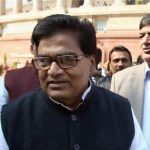In the Hearing of a PIL filed to seek the removing of information related to sex determination on search engines, the Supreme Court on Wednesday directed the Centre to constitute a nodal agency to keep a tab on keywords used on search engines to enable a system of ‘auto-block’ that would black out information on sex determination online in India.
The highest judiciary organisation comes down heavily over the government and the search engines like Yahoo, Google etc. and directed them to remove the keywords related to the sex determination tests.
The Apex court lashed the central govt. and said that “If it’s found that there are certain words which facilitated sex determination, then those words should be deleted in 36 hours.”
The next hearing is scheduled on January 17, 2017.
Sex Determination Tests are illegal in India and even governments are also worried and took many steps to stop the market of this business among the hospitals and Doctors. But, the government still failed to check this issue completely.
The Supreme Court on September 19 heard a Public Interest Litigation (PIL) in which Google, Yahoo and other search engines have been made a party for allegedly putting up advertisements selling pre-natal sex determination kits.
The apex court in July had concluded that the companies’ search engines violated the laws by hosting advertisements for tools, kits and clinics that help determine the sex of a foetus.
The government had held a consultative meeting with the companies to reach a solution on Sex determination.
The PIL was filed by Sabu Mathew George, who sought the court’s intervention to get the government to crack down on the advertisement of sex-determination kits, tools and clinics on websites.
George has alleged that sex-determination ads and links were freely available on the search engines, defeating the purpose of the Pre-Conception and Pre-Natal Diagnostic Techniques Act, enacted in 1994 to stop female foeticides and check the declining sex ratio in India.
Prenatal sex determination was made illegal in India in 1994 to prevent sex-selective abortions.










